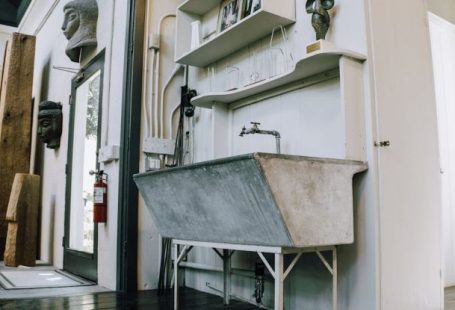Pressure washers are powerful tools that can make cleaning outdoor surfaces a breeze. However, if not used properly, they can also cause damage to delicate surfaces. To avoid any mishaps and ensure that your pressure washer effectively cleans without harming your property, it’s essential to follow some key guidelines. In this article, we will discuss how to use a pressure washer without damaging surfaces.
Understanding Pressure Washer Settings
Before you start using a pressure washer, it’s crucial to familiarize yourself with the various settings and features it offers. Most pressure washers come with adjustable nozzles that allow you to control the intensity of the water stream. These nozzles typically range from 0 degrees (high-pressure, concentrated stream) to 40 degrees (low-pressure, wide fan spray).
When tackling different surfaces, it’s important to use the appropriate nozzle setting to prevent damage. For example, a high-pressure setting may be suitable for concrete or brick, but it can easily strip paint off a wooden deck. Always start with a lower-pressure setting and gradually increase the pressure as needed, testing a small inconspicuous area first to ensure it won’t cause damage.
Maintaining the Right Distance
One common mistake that can lead to surface damage is holding the pressure washer nozzle too close to the surface being cleaned. The ideal distance will vary depending on the surface and the nozzle setting being used, but as a general rule of thumb, it’s best to start at least 2 feet away and adjust accordingly.
Holding the nozzle too close can result in etching or gouging, especially on softer materials like wood or vinyl siding. If you notice any damage occurring, immediately increase the distance between the nozzle and the surface to prevent further harm.
Using the Correct Detergent
In some cases, using a pressure washer with water alone may not be enough to remove tough stains or grime. Adding a detergent specifically formulated for pressure washers can help improve cleaning efficiency without causing damage to the surface.
It’s important to use the correct detergent for the job, as using harsh chemicals or household cleaners can not only harm the surface but also pose environmental risks. Always follow the manufacturer’s recommendations for diluting the detergent and apply it evenly before using the pressure washer.
Working in Sections
To ensure thorough cleaning and prevent streaking or uneven results, it’s best to work in small sections at a time. This approach allows you to focus on one area at a time, ensuring that all dirt and grime are effectively removed without the need for excessive pressure.
By working in sections, you can also monitor the surface for any signs of damage and make adjustments as needed before moving on to the next area. This methodical approach not only helps prevent damage but also ensures a more consistent and thorough clean.
Protecting Nearby Objects
When using a pressure washer, it’s important to consider the surrounding area to prevent accidental damage to nearby objects. Covering delicate plants, outdoor furniture, and electrical outlets with plastic sheeting or tarps can help protect them from the high-pressure water stream.
Additionally, be mindful of where the runoff water is going to avoid flooding or causing damage to other surfaces. By taking the time to prepare the area before starting, you can minimize the risk of causing unintended harm while pressure washing.
In conclusion, using a pressure washer can be an effective way to clean outdoor surfaces, but it’s essential to do so carefully to avoid causing damage. By understanding the settings, maintaining the right distance, using the correct detergent, working in sections, and protecting nearby objects, you can safely and effectively use a pressure washer without harming surfaces. Following these guidelines will not only help you achieve a clean and refreshed outdoor space but also prolong the life of your property.





